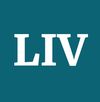Legal Initiatives for Vietnam (LIV) contributes for the Vietnam Chapter of Freedom House’s Freedom on the Net report for 2022.
Overall Score: 22/100 | NOT FREE
Obstacles to Access: 12/25
Limits on Content: 6/35
Violations on User Rights: 4/40
Overview
Internet freedom remained restricted in Vietnam, as the government enforced stringent controls over the country’s online environment. Though the government did not disrupt connectivity or throttle Facebook servers as it had done previously, the state continued mandating that companies remove content and imposed draconian criminal sentences for online expression. A COVID-19 surge in late 2021 propelled government surveillance, and authorities have also sought to expand control over content on social media platforms.
Vietnam is a one-party state, dominated for decades by the ruling Communist Party of Vietnam (CPV). Although some independent candidates are technically allowed to run in legislative elections, most are banned in practice. Freedom of expression, religious freedom, and civil society activism are tightly restricted. Judicial independence is absent.
Key Developments, June 1, 2021 – May 31, 2022
- Government officials ordered international social media companies to remove thousands of pieces of content, particularly targeting criticism of the authorities (see B2).
- New regulations tightened content restrictions on websites that host advertisements and increased administrative fines on companies found to be hosting online speech that authorities deem illegal (see B3, B6, and C2).
- Authorities imposed prison sentences on human rights defenders and everyday internet users for their online activities, including a ten-year sentence issued to activist Trịnh Bá Phương (see C3).
- The expansion of government-run COVID-19 apps and the creation of a central database for new identification cards have raised privacy concerns (see C5).





